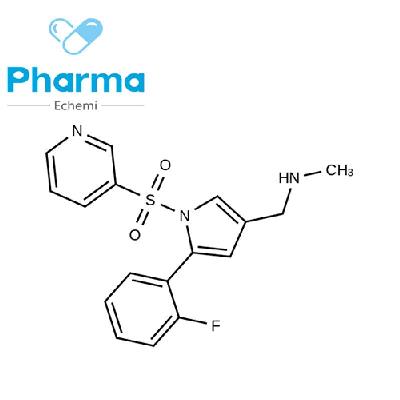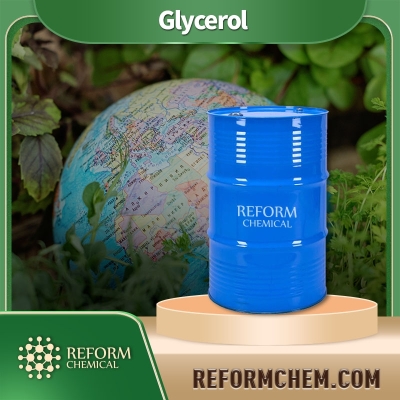-
Categories
-
Pharmaceutical Intermediates
-
Active Pharmaceutical Ingredients
-
Food Additives
- Industrial Coatings
- Agrochemicals
- Dyes and Pigments
- Surfactant
- Flavors and Fragrances
- Chemical Reagents
- Catalyst and Auxiliary
- Natural Products
- Inorganic Chemistry
-
Organic Chemistry
-
Biochemical Engineering
- Analytical Chemistry
-
Cosmetic Ingredient
- Water Treatment Chemical
-
Pharmaceutical Intermediates
Promotion
ECHEMI Mall
Wholesale
Weekly Price
Exhibition
News
-
Trade Service
*For medical professionals only to read and refer to the second session of the Pfizer Renal Cancer Standardized Diagnosis and Treatment Forum, the participating experts discussed the standardized diagnosis and treatment and clinical practice of kidney cancer, and continued to help improve
the level of kidney cancer diagnosis and treatment.
the level of kidney cancer diagnosis and treatment.
In order to improve the clinical diagnosis and treatment ability of grassroots kidney cancer doctors and promote the vigorous development of standardized diagnosis and treatment of kidney cancer in China, on October 18, 2022, the second meeting of the "Yihui Baiying Kidney Knowledge and Insight" Pfizer Kidney Cancer Standardized Diagnosis and Treatment Forum was held
.
Professor Wang Xiang of the First People's Hospital Affiliated to Shanghai Jiao Tong University and Professor Mao Weidong of Jiangyin People's Hospital jointly served as the chairmen, and grassroots experts and field experts gathered together to share the frontiers of kidney cancer diagnosis and treatment and discuss clinical classic cases
.
Professor Wang Xiang
Professor Mao Weidong
Recent progress and trends in the diagnosis and treatment of kidney cancer
Professor Qu Yuanyuan of Fudan University Cancer Hospital shared a special report
on the latest progress and trend of kidney cancer diagnosis and treatment.
He pointed out that immunotherapy has become the mainstream of first-line treatment for advanced kidney cancer, and real-world observations have found that target-free combination can better improve treatment outcomes.
In second-line therapy, immunotherapy or immunocombination therapy is the main choice after failure of TKI therapy, while TKI therapy is an important option
after immunotherapy failure.
Following Professor Qu Yuanyuan's report, Professor Mawumu Mamut of the First People's Hospital of Kashgar District, Professor Tian Junwei of the First People's Hospital of Longjiang County, Professor Zhang Cheng of the Fourth Division Hospital of the Xinjiang Construction Corps and Professor Zhang Shijie of Zhuanghe Central Hospital had a heated discussion on the hot and difficult topics of kidney cancer diagnosis and treatment in clinical practice, and pointed out that in clinical practice, the treatment plan should be individualized and stratified according to the patient's condition, and the whole process management strategy
should be optimized.
Targeted drug therapy such as axitinib is still an important treatment for advanced kidney cancer, especially in primary hospitals, and rational drug use is expected to bring patients both efficacy and quality of life
.
Professor Qu Yuanyuan
Discussion session
Clinical practice classic case sharing
Professor Shao Jialiang: Diagnosis and treatment of kidney cancer with multi-organ metastasis is fully managed
Professor Shao Jialiang of the First People's Hospital Affiliated to Shanghai Jiao Tong University shared the whole management process
of 2 cases of kidney cancer with multi-organ metastasis.
[Disclaimer: The case sharing and discussion involved in the meeting is for educational and communication purposes only, and does not involve consultation and intervention in diagnosis and treatment
.
The relevant diagnosis and treatment decisions are made
independently by the doctor according to the patient's situation.
】
Case 1: A 42-year-old male diagnosed with advanced right renal clear cell carcinoma with lung, brain, and adrenal metastases (pT1bN0M1, stage IV), low risk MSKCC score & IMDC score, and type 2 diabetes
.
From December 2018 to March 2019, left frontal lobe mass resection, laparoscopic radical resection of right kidney cancer (including ipsilateral adrenal gland) and radical resection of right lung cancer
were performed.
On November 4, 2019, the patient was admitted again for "repeated vomiting and one week of adrenal difference", and was diagnosed with secondary adrenal insufficiency, and after hydrocortisone replacement therapy (100mg bid IVGTT*3d, then reduced to 100mg qd*2d), the patient's symptoms improved and his condition stabilized
.
On January 25, 2020, oral targeted drug therapy
was continued.
After 4 months of treatment, non-contrast chest CT scan found solid nodules in both lungs, thickening of the left pleural nodule, enlargement of mediastinal lymph nodes, and destruction of the 8th posterior rib on the left side, all of which were enlarged than before, and were considered metastases; Abdominal CT scan found that the metastases in the left adrenal area (53*48mm) were slightly larger than before, with multiple enlarged lymph nodes around them, thickening of the left renal fascia, and bone destruction area of the left iliac bone, which was considered metastases
.
The course of treatment in this case showed that there is still a potential benefit
of maximum surgical descaling in patients with kidney cancer with multi-organ metastasis.
At the same time, targeted therapy can prolong patient survival, but close follow-up monitoring of drug side effects
is required during treatment.
Case 2: A 21-year-old female who was diagnosed as (left kidney) renal cell carcinoma in October 2020 due to "B-ultrasound found a huge left kidney mass for more than 1 month", combined with immunohistochemistry and molecular test results, in line with TFE3 (translocation)-related renal cell carcinoma with fibrocollagenization, calcification and cystic degeneration, the size of the cancer is 15*12*7.
5cm, and the expression of PD-L1 is positive
.
The patient underwent robotic-assisted radical resection
of left kidney cancer on 20 October 2020.
In May 2021, PET examination showed multiple metastases in the liver and multiple bone metastases
throughout the body.
In June 2021, the patient began targeted immunotherapy in combination
.
After 3 months, enhanced CT of the abdomen showed that the nodular mass in the surgical area was 18*9mm, and it was slightly strengthened after enhancement; Multiple low-density mass opacities were seen in the liver, the largest of which was about 51mm in diameter; Multiple lymph nodes behind the peritoneum
.
After 6 months of treatment, enhanced CT of the abdomen showed multiple low-density mass images in the liver, the largest of which was about 35 mm in diameter, which was smaller than before; Bone scan showed that after left kidney cancer surgery, T10, T12, L1-3, and left ischial bone were destroyed, and there was no obvious change compared with before.
Lung CT showed that the lung metastases were more numerous and cavities, and the largest lesion was about 3 cm
.
TFE3 translocation renal cell carcinoma is a rare and heterogeneous subtype of advanced renal cancer for which there is currently no standard treatment
.
It can be seen from the treatment process of this case that targeted no-vaccine combination therapy is expected to prolong the survival of patients and improve prognosis
.
Professor Shao Jialiang
Professor Xie Hemin: Targeted combination therapy for advanced renal cancer to achieve CR
[Disclaimer: The case sharing and discussion involved in the meeting is for educational and communication purposes only, and does not involve consultation and intervention in diagnosis and treatment
.
The relevant diagnosis and treatment decisions are made
independently by the doctor according to the patient's situation.
】
Professor Xie Hemin of Yixing Cancer Hospital shared a case of
advanced kidney cancer.
On February 5, 2020, the patient went to Yixing Traditional Chinese Medicine Hospital for "right low back pain with hematuria for 10 hours", and the CT examination showed "right kidney mass, considering cancer", so he underwent laparoscopic radical resection of the right kidney on February 11, 2020, and the postoperative pathology showed (right kidney) clear cell carcinoma grade
II-III.
In November 2020, the patient was re-examined in Yixing People's Hospital for multiple metastases and transferred to our hospital for treatment
.
After admission diagnosis of right kidney cancer, multiple metastases in the right renal area, right psoas major muscle, right pelvic cavity, right abdominal wall, and multiple metastases in both lungs (stage IV); Hypertension grade
2.
The patient underwent iodine-125 particle implantation on November 16, 2020 for the right renal area and right parapsoas major muscle metastases, and iodine-125 seed implantation for the right pelvic metastases on November 20, 2020.
From November 23, 2020, patients received targeted immunotherapy in combination
.
On December 11, 2020, the CT review found that multiple metastases in the right renal area, right psoas major muscle, right pelvic cavity and right abdominal wall were significantly smaller than before, and multiple metastases in both lungs were narrowed compared with before, and the efficacy was evaluated as metastases achieving most of the remission (PR), and the metastases were further reduced at the reexamination on May 14, 2021, and the efficacy was evaluated as continuous PR.
On August 5, 2021, re-examination CT showed metastatic lesions (1.
0*1.
2cm)
of the parapsoas major muscle in the right renal surgery area.
After MDT discussion, local residue was considered, and iodine-125 particle implantation was performed on August 9, 2021, and systemic therapy continued to be combined with targeted immunity for consolidation therapy
.
On October 28, 2021, re-examination CT showed that the right parapsoas major muscle lesion achieved complete remission (CR); On July 7, 2022, re-examination CT showed that multiple metastases in both lungs, abdominal cavity, pelvis and subcutaneous reached tumor clinical CR.
In addition, the patient was generally well
tolerated by targeted no-mask combination therapy.
During treatment, there was second-degree leukopenia, no thrombocytopenia, mild nervousness, fatigue, and symptomatic treatment; hypothyroidism, which is restored after replacement therapy with levothyroxine supplementation; There were no other adverse events
such as interstitial pneumonia and hypocortisol.
At the same time, Professor Xie Hemin pointed out that the occurrence of advanced kidney cancer is related to the function loss of VHL gene, which leads to abnormal regulation of the VEGF pathway, making advanced kidney cancer a vascular-rich tumor
.
Axitinib is a new generation of VEGFR-TKI that can efficiently and selectively inhibit VEGFR-1,2,3
.
Moreover, the high selectivity of axitinib can reduce its off-target effect, so the incidence of adverse events in clinical use is low, common adverse events are easy to manage, and the rate of adverse event reduction or discontinuation is low
.
Professor Xie Hemin
After the wonderful case sharing, Professor Cai Xuehui of Wafangdian Central Hospital, Professor Peng Bo of Hami Second People's Hospital, Professor Wang Yang of Tieli People's Hospital, Professor Xu Yonggan of Xinghua People's Hospital, Professor Miao Huidong of Zhangjiagang First People's Hospital and Professor Yang Yun of Kunshan First People's Hospital discussed the diagnosis and treatment process of the above cases, highly affirming the therapeutic value
of axitinib in advanced kidney cancer.
Discussion session
Finally, the chairmen of the conference, Professor Wang Xiang and Professor Mao Weidong
, summarized the conference.
The conference brought together medical oncology and oncology surgery experts from different regions of the country to focus on the frontiers of kidney cancer diagnosis and treatment and clinical actual cases to make special reports, and carry out heated discussions, which will further promote the development of standardized diagnosis and treatment of
kidney cancer.
summary
Upcoming events
The third meeting of the Pfizer Kidney Cancer Standardized Diagnosis and Treatment Forum is scheduled to be held
on November 17, 2022.
Professor Hou Jingzhi of Hengzhou Hospital of Quyang County will serve as the chairman of the conference, and continue to carry out academic exchanges
on standardized diagnosis and treatment of kidney cancer through online special lectures and seminars.
I look forward to meeting with experts and scholars in the field of kidney cancer online
in the next issue.
PP-INL-CHN-0426 Expiration Date: 2024-10-26







